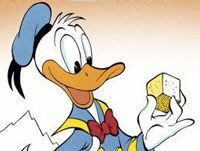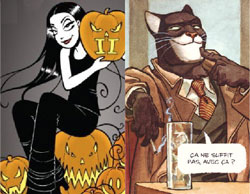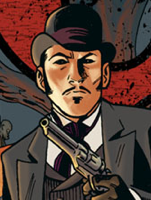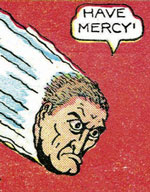 What do you do when your town monster just doesn’t bring the scary? Hire someone to get the big red guy out of his funk. Rob Harrell breaks out of the funny pages with his first graphic novel, Monster on the Hill; Tim & Mulele review.
What do you do when your town monster just doesn’t bring the scary? Hire someone to get the big red guy out of his funk. Rob Harrell breaks out of the funny pages with his first graphic novel, Monster on the Hill; Tim & Mulele review.
Meanwhile, much scarier monsters lurk in the background of Justin Randall’s Changing Ways, Book 2. Tim & Brandon take a look and compare with Book 1. The monsters are scary, but is the book?
Podcast: Play in new window | Download





 Yet again, Kumar and Dana go all nationalistic to discuss another Canadian icon: the best there is at what he does, th’ ol’ Canucklehead, Wolverine, bub. First on the chopping block is Wolverine (1982) by Chris Claremont and Frank Miller, a comic which tries to not be paint-by-numbers, but ends up being little else. And, Barry Windsor-Smith’s Weapon X, which was apparently spawned from a universe in which neither paint nor numbers exist.
Yet again, Kumar and Dana go all nationalistic to discuss another Canadian icon: the best there is at what he does, th’ ol’ Canucklehead, Wolverine, bub. First on the chopping block is Wolverine (1982) by Chris Claremont and Frank Miller, a comic which tries to not be paint-by-numbers, but ends up being little else. And, Barry Windsor-Smith’s Weapon X, which was apparently spawned from a universe in which neither paint nor numbers exist.


